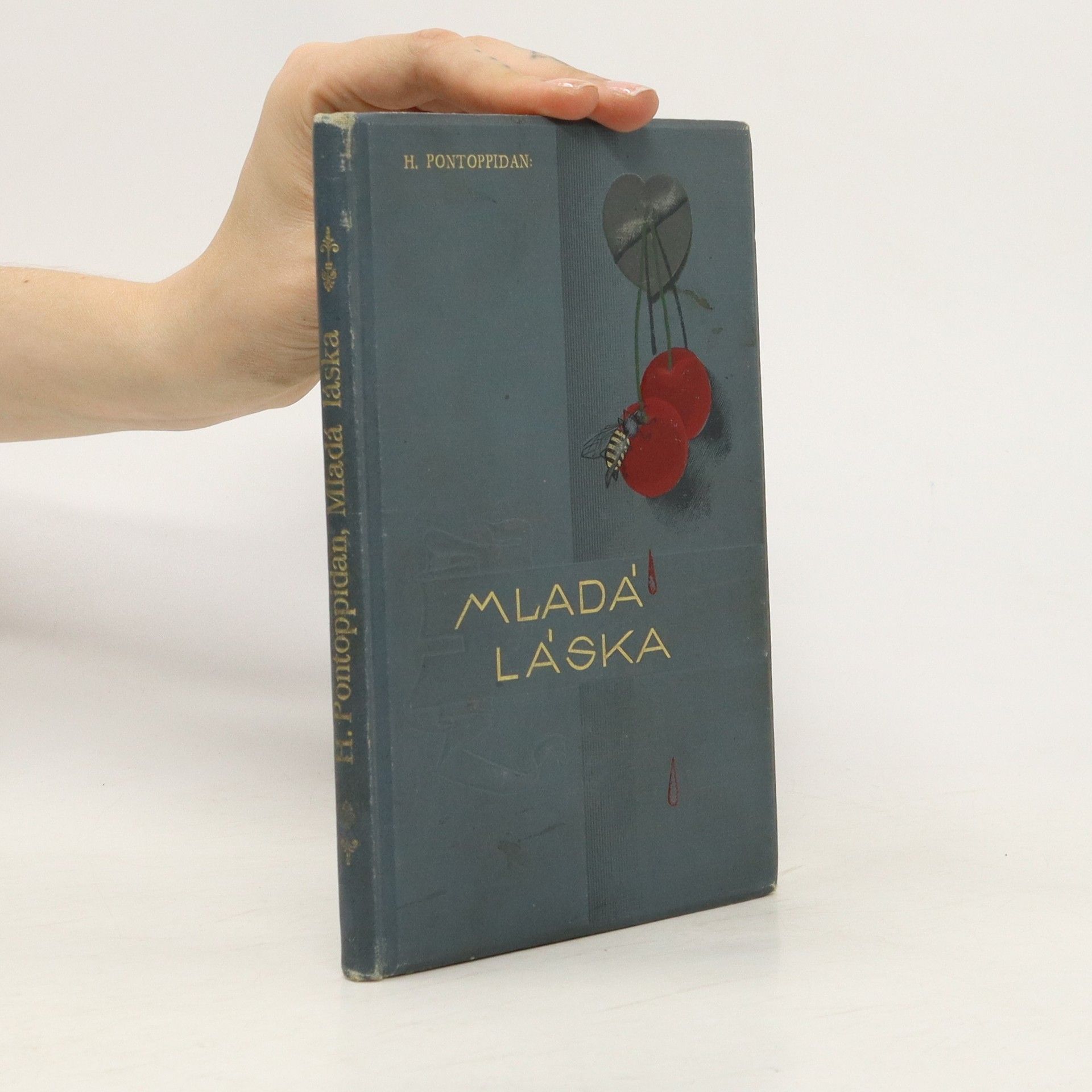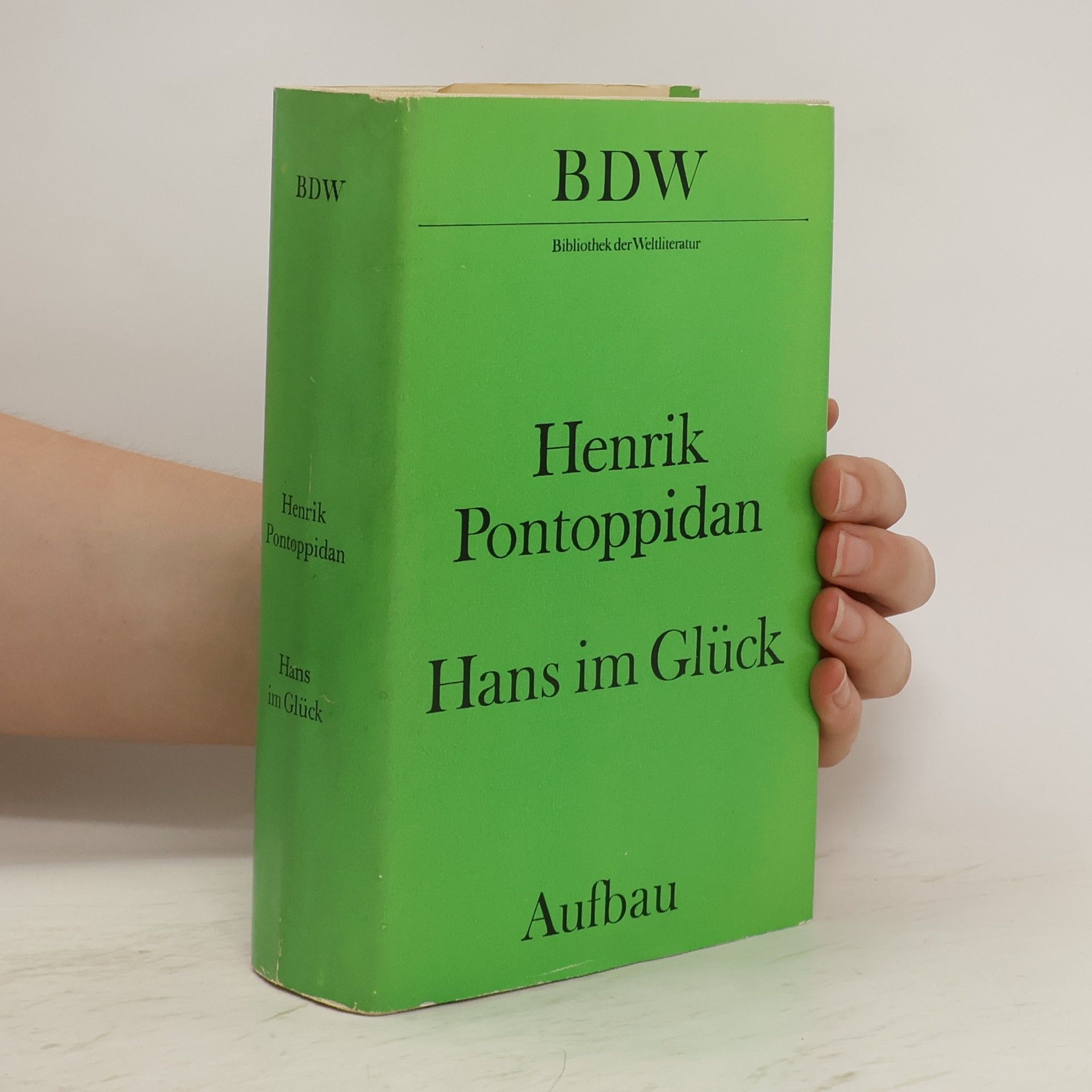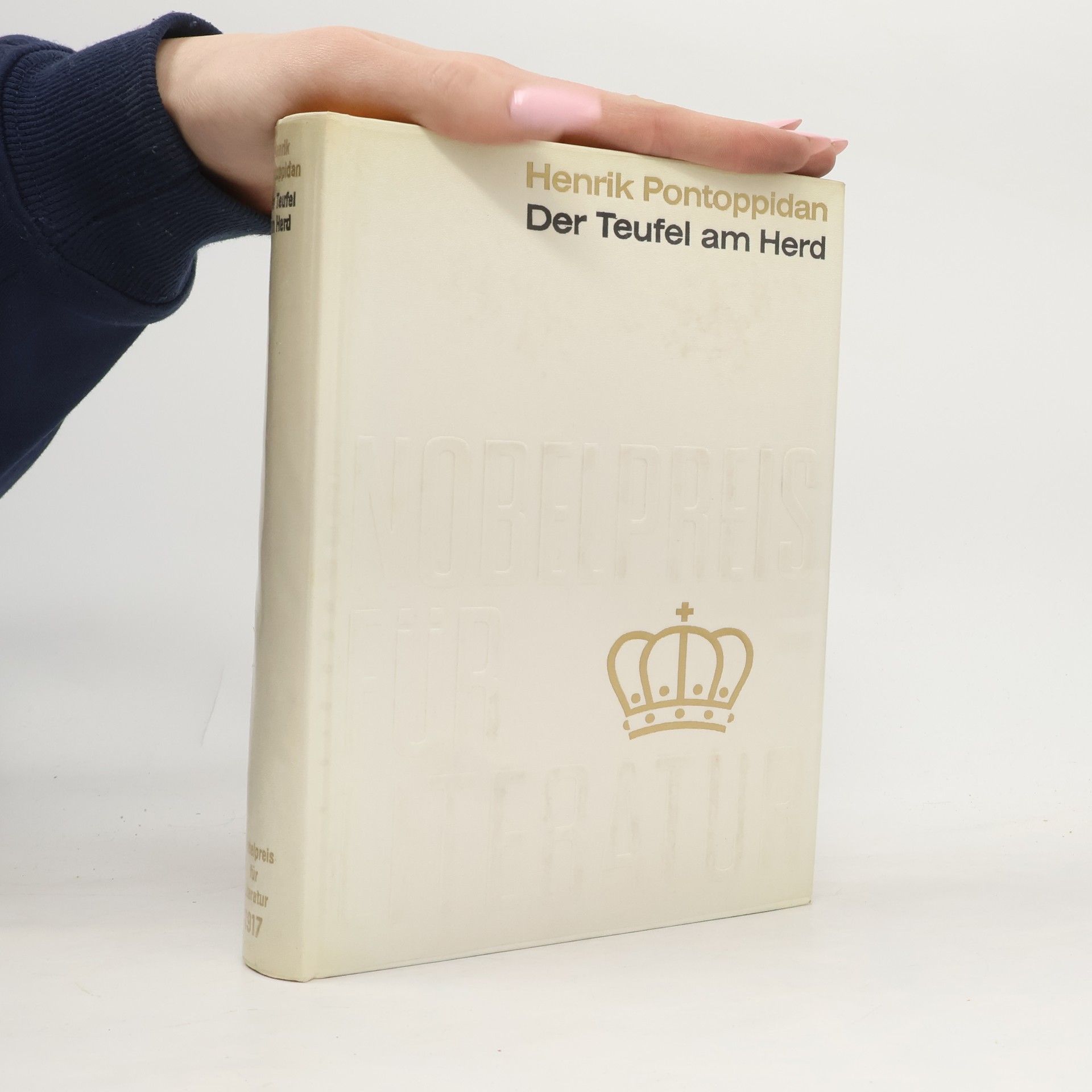Henrik Pontoppidan Knihy
Tento autor je známý svým autentickým zobrazením současného života v Dánsku. Jeho dílo se ponořuje do hloubky lidské zkušenosti a zachycuje jemné nuance každodenního bytí. Prostřednictvím svého jedinečného stylu a pronikavého pozorovacího talentu nabízí čtenářům pohled na svět, který je zároveň povědomý i odhalující. Jeho psaní je oslavováno pro svou upřímnost a schopnost rezonovat s čtenáři na hluboké emocionální úrovni.







Rozsáhlý román Štastný Per představuje jeden z vrcholů dánské realisticko-naturalistické literatury, jejíž největší rozkvět spadá do poslední čtvrtiny minulého století. Autor, nositel Nobelovy ceny za r. 1917, si v něm bere na mušku nezdravou romantiku, snílkovství, naivní víru, že všesamo od sebe dobře dopadne, jakož i neschopnost proměňovat myšlenky v činy. Na osudech farářského synka Petra Sideni, který se vzbouří proti rodině, škole, církvi i celé společnosti a pokusí se "dobýt svět", ale nakonec vlastní vinou ztroskotává, ukazuje, že nestačí chtít a přát si, že v životě je třeba umět důsledně jít za svým cílem a překonávat i nejobtížnější překážky. Spisovatelův pohled na svět a člověka v něm není ovšem vůbec černobílý, jednotlivé postavy knihy jsou nazírány vždy z několika stran, takže kritiku často provází obhajoba, či alespoň snaha o pochopení.
Dánsko v realistickém líčení měkkého jihu a drsného severu, od dun až po vřesoviště, od lásky po nenávist, od pochopení po roztržky... tak, jak jej viděl nositel Nobelovy ceny za rok 1917.
A Fortunate Man
- 773 stránek
- 28 hodin čtení
At the height of his powers, Per Sidenius, the son of a poor religious minister, is a fortunate man. He has the whole of the approaching twentieth century in his grasp: a fabulously rich Jewish heiress as a soon-to-be wife, burgeoning fame as a forward- and free-thinking man of the ‘New Age’ and success in having put his sorry childhood behind him. But just as he reaches the lofty heights of bourgeois success, Per begins to deeply question his life. A series of events then unfold which Nobel Prize–winning author Henrik Pontoppidan describes with unflinching honesty and intensely human passion. Here is the hectic foment of social and religious debate, the unrepentant greed of finance sharks, the hot coals of pure and illicit love. Then the biggest questions of all – who am I and what have I to do? With A Fortunate Man (1898–1904) one of Denmark’s greatest ever writers manages not only to sound the depths of his nation’s soul but also to paint a huge European canvas stretching from vintage Copenhagen to the sultry heat of Rome at the turn of the nineteenth century. Heralded by such influential figures as Thomas Mann and Georg Lukács as a seminal work, this is a truly breathtaking novel which places Henrik Pontoppidan as one of the true greats of modern European literature.
Emanuel; Or, Children of the Soil
- 320 stránek
- 12 hodin čtení
Henrik Pontoppidan's early work, published in 1896, showcases his evolution from engineer to journalist and writer. Known for his deep exploration of Danish culture, Pontoppidan gained acclaim for notable titles like The Promised Land and won the Nobel Prize for Literature in 1917. This edition includes a new introductory biography, providing context to his literary contributions and the societal themes he addressed throughout his career.
Hans im Glück, in 2 Bdn.. 'Lykke-Per'. Mit e. Essay v. Winfried Menninghaus
- 900 stránek
- 32 hodin čtení
Zwei Bände mit einem Essay von Winfried Menninghaus und Illustrationen von Jutta Garbert.
Zum 80. Todestag des dänischen Nobelpreisträgers von 1917 Henrik Pontoppidan: seine ironischen Erzählungen und Reisereportagen. Es ist höchste Zeit, mit Henrik Pontoppidan einen hierzulande fast vergessenen Klassiker der Moderne (wieder) zu entdecken. Der Band »Kaum ein Tag ohne Spektakel« versammelt zwölf Erzählungen und acht Feuilletons, die die thematische Bandbreite und die stilistische Spannweite dieses bedeutendsten Vertreters des dänischen Realismus abbilden. Es sind Geschichten, Kritiken, Kolumnen und Reportagen, die sich in einem Spannungsfeld zwischen Romantik und Modernität bewegen. Pontoppidan erzählt vom Leben auf dem Land und in der Großstadt Kopenhagen ebenso wie vom Zusammenstoß dieser beiden Lebenswelten. Er schreibt über existenzielle Krisen, politische Gegensätze und Randexistenzen, aber er liefert auch großartige Reisereportagen - unter anderem aus dem kaiserlichen Berlin - und befasst sich ausgesprochen ironisch mit ganz alltäglichen Dingen wie dem Zustand der dänischen Gaststätten, Hotels und Gasthöfe.


